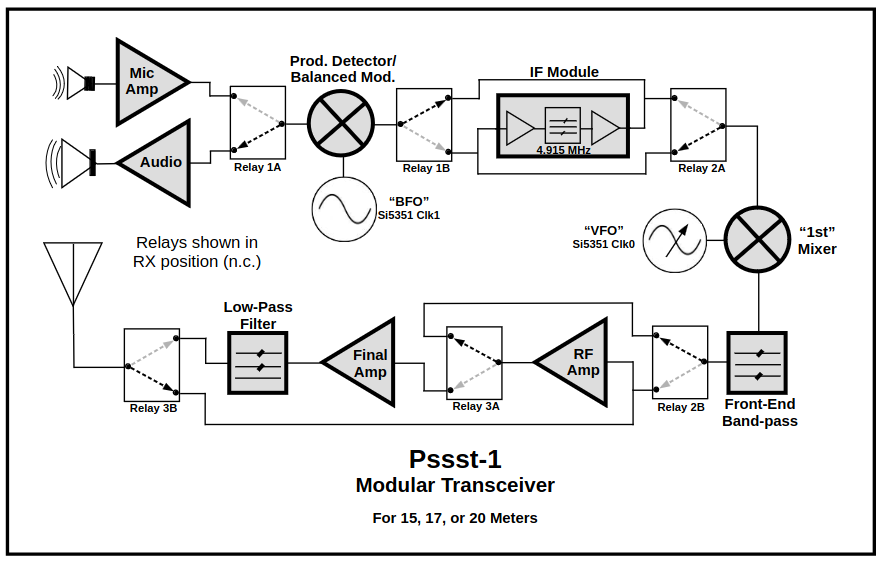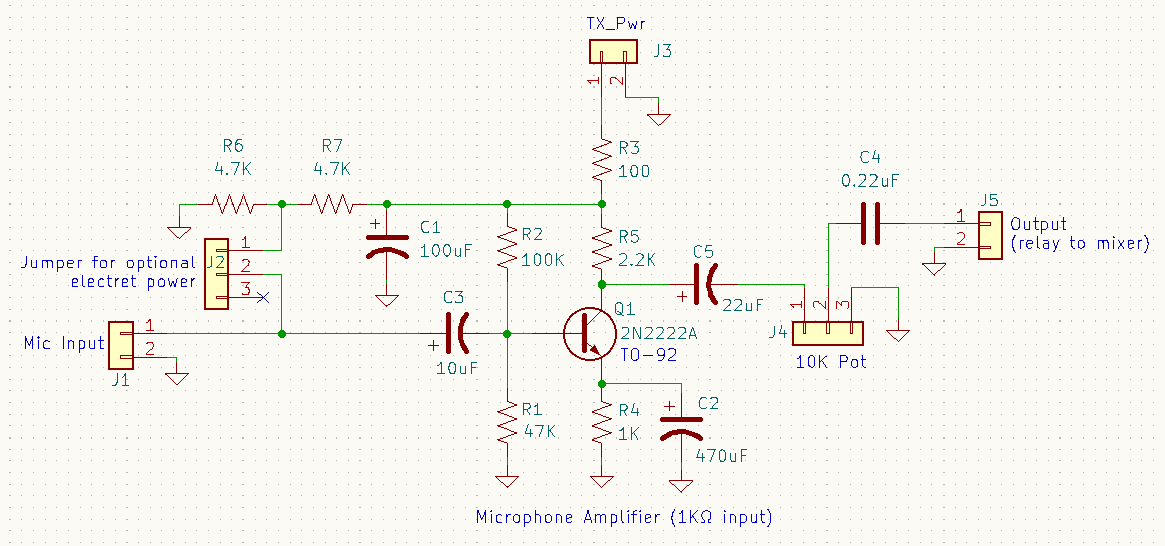From the wizard of Newbury Park!The Pssst Transceiver Kit
|
 |
|
Sometimes you just want to put something together and have it work, you know? No futzing with isolation pads, superglue, and blank copper-clad, no dead-bug make-shifts, no ugly, ugly, ugly component acrobatics. Sometimes, a nice and orderly printed-circuit board that's just like uptown, along with sorted and clearly-labeled components and step-by-step instructions, can provide respite from the terrors and risks of scratch-built homebrewing. Just once in a while, mind you.
|
| Here's a dandy kit that can get you on 15, 17, or 20 meters pretty quickly, is fairly simple to put together (only eight transistors), and is small enough to take on a trip. At the same time, its modular architecture makes it also an experimenter's platform. It's not a single PCB and a mess of components. Each circuit block is its-own module which you can swap out for a different one you scratch build later on. |
|
 |
Why would you want to do that? Suppose, for instance, you want a narrower passband for the SSB filter (maybe even narrow enough for CW use). Likewise, you might want a wider or narrower front-end bandpass filter, or a different frequency response for the mic amp. Or, how about an active or triple-balanced diode-ring mixer for the product detector, or maybe higher gain in the RF amplifier on receive? Because the circuit modules in the Pssst just plug into a motherboard, you can unplug one and put another one in.
|
Of course, you can do this to change bands as well. All you need to do is to swap out the front-end band-pass filter and you can put the rig on 15 or 17 or 20 meters (along with changing a jumper on the digital VFO/BFO board).
|
The Pssst was designed and originally built by Pete Juliano, N6QW (Pete's Simple Single-Sideband Transceiver). Rather than use bidirectional circuits for many of the blocks, he relies on inexpensive relays to "steer" the modules from receive to transmit modes. Each active module uses a single transistor for gain (except for the final amp which uses three), and in that way the Pssst is a minimal design that, because of its modular architecture, can be made as complex and as elaborate as the experimenter wishes.
|
The Pssst is designed for a nominal output of 5 Watts on 20M when fed with 12VDC. By feeding the final amp with a higher voltage and providing some active cooling (from a three-dollar "pancake" fan), output can be increased to beyond 15 Watts.
|
In addition to complete and detailed kit instructions, the Pssst design has an existing Groups.io "reflector" forum for the exchange of ideas and questions. The kit will be available in two basic versions: with or without enclosure panels and hardware.
|
Available on the 150th birthday of Lee DeForest, the inventor of the Triode (August 26th) |
This was in the latest newsletter from MostlyDIYRF.
Thanks to Pete Eaton for alerting us.
FB Todd!


Dear Bill: Considering the challenges you have had in the school project with your discrete transistor audio amplifier, note that as of today DIYrf has still not released their discrete audio amplifier yet, so we will see what they come up with to use with Pete's rig...
ReplyDelete